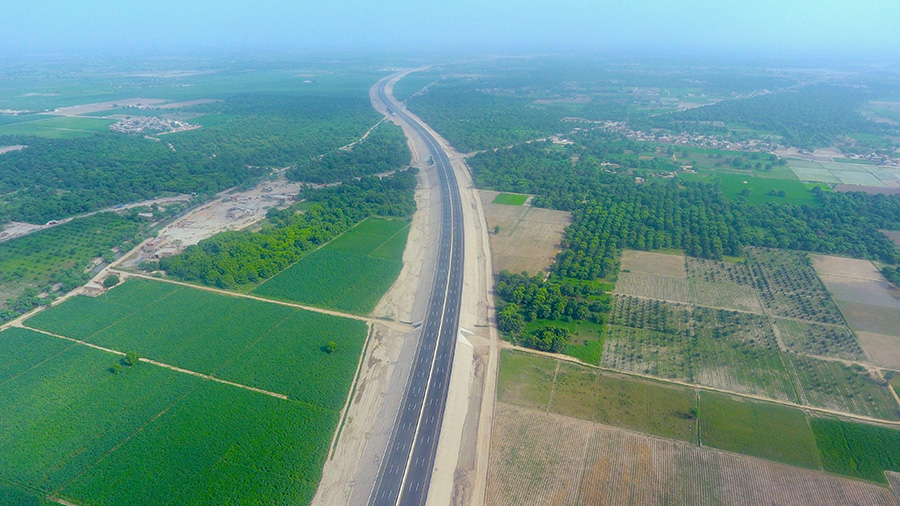'Motorway of friendship': CSCEC's Peshawar-Karachi Motorway inaugurated
 0 Comment(s)
0 Comment(s) Print
Print E-mail China.org.cn, November 7, 2019
E-mail China.org.cn, November 7, 2019

The Sukkur-Multan section of the Pakistan Peshawar-Karachi Motorway (PKM), the largest infrastructure project along the China-Pakistan Economic Corridor (CPEC), was inaugurated on Nov. 5 in Islamabad. The project was undertaken by the China State Construction Engineering Corporation (CSCEC).
The inauguration ceremony was attended by Ning Jizhe, deputy director of the National Development and Reform Commission of China, Murad Saeed, federal minister for communications of Pakistan, Yao Jing, Chinese ambassador to Pakistan, Wang Zhihua, economic and commercial counselor of the Chinese Embassy in Pakistan, Zheng Xuexuan, board director of CSCEC, Sikander Qayum, chairman of the National Highway Authority (NHA) of Pakistan and Mansoor Sirohey, a member of NHA, Shan Hongjun, deputy director general of the Department of International Cooperation of China's Ministry of Transport, and Jiang Juhua, secretary to the board of directors of the Export-Import Bank of China..
The motorway is a key project on the Belt and Road and the south-north transport artery of Pakistan. The CSCEC team started constructing it in August 2016 according to an ambitious plan and high standards, and accomplished its construction through high-quality management. Now, it has become a model project of friendly cooperation between China and Pakistan.

Road of wellbeing for win-win cooperation
The Sukkur-Multan section of the motorway starts from Sukkur, Sindh province, in south Pakistan and connects to Multan, Punjab province, in the north. The 392-kilometer motorway has a design speed of 120 kilometers per hour, and is the first bi-directional six-lane motorway with an intelligent transportation function in the country. Its contract value is about US$2.9 billion.
The contract period of the project was 36 months. There are 100 bridges, 468 underpasses, 991 culverts, 11 interchanges, six pairs of service areas, five pairs of rest areas, and 24 toll stations. The motorway was divided into seven sections for simultaneous construction. The CSCEC team imported more than 3,500 sets of large machinery and equipment from China, which ensured a steady progress of the project.
Multan and Sukkur are important cities in Pakistan, and they are now connected by the motorway. Multan is a major area for producing mangoes, dates and other crops, while Sukkur is an important transport hub. The motorway can reduce the commuting time between the two cities from 11 hours to less than four hours, thus expediting the construction of the CPEC and travel between China and Pakistan.
During the construction, the Pakistani government provided huge support for the project in terms of security.
The local temperature often reaches above 40 degrees Celsius. Despite the harsh natural environment, the CSCEC team completed the tasks one after another. On May 26, 2018, the 33-kilometer section of the project opened to traffic 14 months earlier than the contractual deadline. On July 23 this year, the whole project was completed two weeks ahead of schedule.
The NHA gave a thumb up to the CSCEC team, saying that the Sukkur-Multan section is a highway project of the highest standard in Pakistan to date, setting a good example for the construction of the motorway.






Go to Forum >>0 Comment(s)